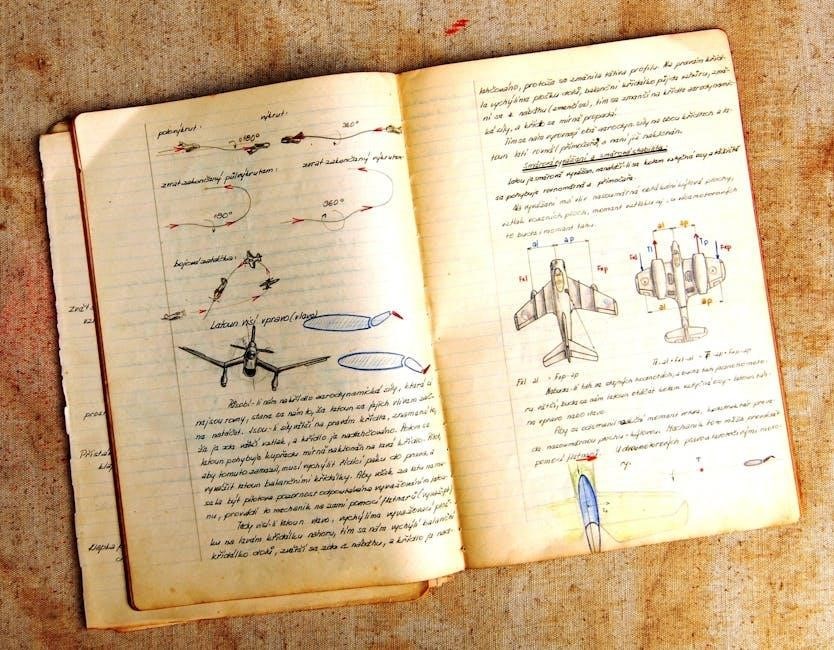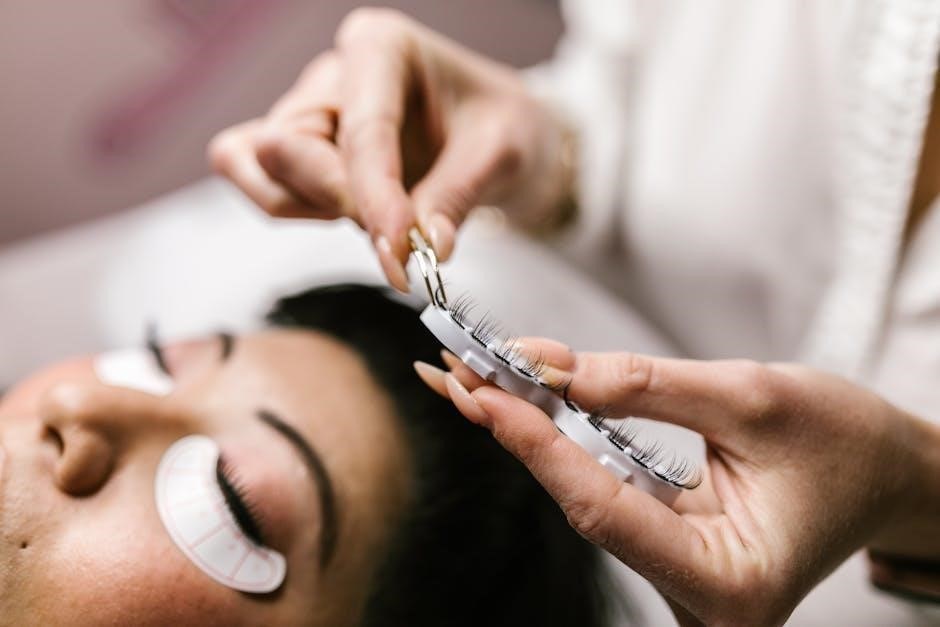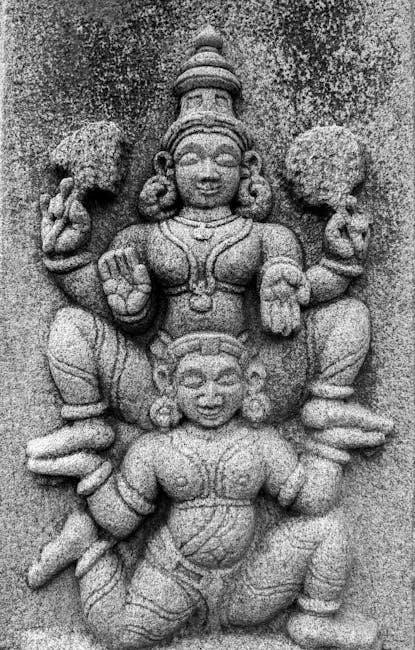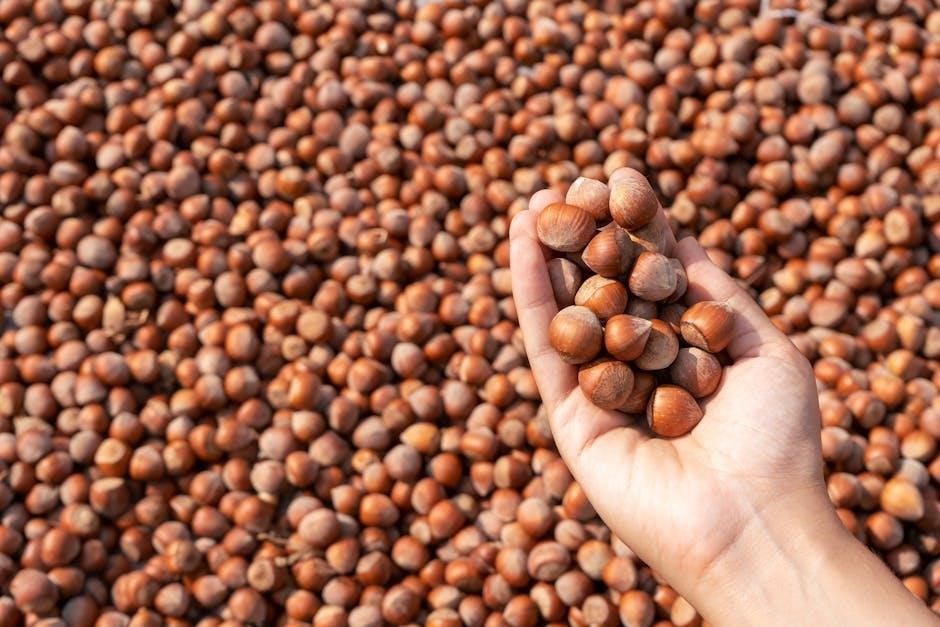warehouse racking safety standards pdf
Warehouse racking safety standards are essential for preventing accidents and ensuring structural integrity. Compliance with these standards is crucial for optimizing storage solutions and safeguarding employees. Regular inspections and adherence to guidelines help maintain a safe working environment, minimizing risks and enhancing operational efficiency.
Importance of Safety in Warehouse Operations
Safety in warehouse operations is paramount to protect employees, equipment, and inventory from potential hazards. Warehouses often involve heavy machinery, tall shelving, and constant movement, creating environments prone to accidents. Neglecting safety protocols can lead to severe injuries, equipment damage, and financial losses. Adhering to safety standards ensures compliance with regulations like OSHA and minimizes risks. Proper training, regular inspections, and maintaining equipment are critical. A safe environment boosts employee morale, reduces downtime, and enhances overall efficiency. Prioritizing safety fosters a culture of responsibility and sustainability, ensuring long-term operational success and legal compliance.
Overview of Racking Systems in Warehouses
Racking systems are essential structures in warehouses used to store goods and materials efficiently. They maximize vertical space, enabling better inventory management and accessibility. Common types include selective racks for easy access, double deep racks for higher density, drive-in racks for bulk storage, and cantilever racks for long or irregular items. These systems are designed to handle varying load capacities and are typically constructed from durable materials like steel. Properly installed racking systems enhance operational efficiency, reduce storage costs, and improve workplace organization. Their design and configuration play a crucial role in ensuring safe and efficient warehouse operations.
Objective of Safety Standards for Warehouse Racking
The primary objective of safety standards for warehouse racking is to ensure the structural integrity and stability of racking systems, preventing accidents and protecting personnel, products, and facilities from potential damage. These standards aim to establish clear guidelines for design, installation, maintenance, and operation to minimize risks. They address factors such as load capacity, material quality, and proper configuration to safeguard against collapses and other hazards. Additionally, safety standards promote compliance with regulatory requirements and industry best practices, ensuring a safe working environment while optimizing warehouse efficiency and productivity. Adherence to these standards is critical for long-term operational safety and reliability.

Key Safety Standards for Warehouse Racking
Key safety standards for warehouse racking ensure structural stability, safety, and compliance, reducing risks and promoting best practices for secure storage and efficient operations.
OSHA Requirements for Warehouse Racking
OSHA requires warehouse racking systems to be designed, installed, and maintained to ensure structural integrity and safety. Regular inspections, including daily visual checks and annual detailed evaluations by certified professionals, are mandatory. Racks must be loaded within their weight capacity and properly secured to prevent collapse. Employees must be trained on safety practices, and supervisors must enforce compliance. Proper installation by qualified personnel is essential, and maintenance records must be kept. OSHA also mandates that damaged racks be repaired or replaced promptly to avoid hazards. Compliance with these standards helps prevent accidents, protects workers, and ensures operational efficiency in warehouse environments.
- Regular inspections and maintenance.
- Load capacity adherence.
- Proper installation and training.
- Incident prevention and compliance enforcement.
Rack Manufacturers Institute (RMI) Specifications
The Rack Manufacturers Institute (RMI) provides detailed specifications for the design, testing, and installation of storage racks to ensure safety and reliability. These standards cover load capacities, structural integrity, and safety factors to prevent failures. RMI guidelines emphasize proper material selection, welding techniques, and assembly methods to meet performance requirements. They also outline testing procedures, such as seismic evaluations and load testing, to validate rack systems. Compliance with RMI specifications ensures that racking systems can withstand operational stresses and environmental conditions, minimizing risks of collapse or damage. Adhering to these standards is crucial for maintaining a safe and efficient warehouse environment.
- Load capacity and structural integrity.
- Material selection and manufacturing techniques.
- Testing procedures for safety validation.
- Compliance for operational reliability.
CSA A344 Guide for Steel Storage Racks
The CSA A344 guide provides comprehensive standards for the design, installation, maintenance, and inspection of steel storage racks in Canada. It ensures that racking systems are structurally sound and safe for use. Key aspects include load capacity calculations, material specifications, and seismic considerations. The standard also outlines requirements for rack assembly, anchorage, and protection against corrosion. Regular inspections and maintenance protocols are emphasized to identify and address potential hazards. Compliance with CSA A344 helps prevent accidents, ensuring the stability and longevity of steel storage racks in warehouse environments. It is a critical resource for achieving safety and operational efficiency.
- Structural design and load capacity.
- Material and manufacturing requirements.
- Inspection and maintenance guidelines.
- Seismic and environmental considerations.
European Standards for Racking Systems
European standards for racking systems, such as EN 15512 and EN 15620, provide detailed requirements for the design, installation, and maintenance of storage racks. These standards ensure that racking systems meet safety and performance criteria, including load capacity, structural integrity, and material quality. Regular inspections and compliance with these standards are essential to prevent accidents and ensure operational efficiency. Key aspects include proper installation, load application, and periodic inspections to identify potential risks. Adherence to these standards ensures the stability and longevity of racking systems, contributing to a safer working environment in European warehouses.
- Design and structural requirements.
- Load capacity and application guidelines.
- Installation and maintenance protocols.
- Inspection frequencies and criteria.
Other International Safety Standards
Beyond European and North American standards, other regions have established their own safety protocols for warehouse racking systems. For instance, Australia follows AS 4084 for steel storage racks, while Canada adheres to CSA A344. In Asia, countries like Japan and China have their own JIS and GB standards, respectively, ensuring racking systems meet local safety and structural requirements. These standards often include guidelines for design, testing, and maintenance to prevent accidents. Compliance with these international standards is crucial for global operations, ensuring consistency and safety across borders. They also emphasize proper installation, load capacity, and regular inspections to maintain stability and prevent failures.
- AS 4084 (Australia) for steel storage racks.
- CSA A344 (Canada) for steel storage rack systems.
- JIS and GB standards in Asia.
- Global compliance for consistent safety.

Inspection and Maintenance of Racking Systems
Regular inspections and maintenance are crucial to ensure racking systems remain stable, safe, and functional, preventing potential failures and ensuring compliance with safety standards.
Annual Rack Inspections
Annual rack inspections are essential for maintaining the safety and efficiency of warehouse racking systems. Conducted by certified professionals, these inspections evaluate the structural integrity of racks, ensuring they meet safety standards. Key areas of focus include checking for damage, wear, misalignment, and corrosion. Load capacity and proper installation are verified to prevent potential failures. Regular inspections help identify and address issues before they escalate, minimizing risks of accidents and operational disruptions. By adhering to a scheduled inspection program, warehouses can ensure compliance with industry regulations and maintain a safe working environment for employees. This proactive approach is vital for operational stability.
Comprehensive Warehouse Safety Checklist
A comprehensive warehouse safety checklist is a detailed guide to ensure all aspects of warehouse operations meet safety standards. It includes regular inspections of racking systems, proper storage of heavy items, and secure aisle markings. The checklist also covers housekeeping practices, such as clearing obstructions and ensuring proper lighting. Training requirements for employees and supervisors are outlined, along with emergency response plans. Compliance with fire safety regulations and first aid availability is also verified. By following this checklist, warehouses can minimize risks, prevent accidents, and maintain a safe working environment. Regular updates ensure the checklist aligns with evolving safety standards and operational needs.
Third-Party Rack Inspection Benefits
Third-party rack inspections provide an unbiased assessment of warehouse racking systems, ensuring compliance with safety standards. These inspections identify potential risks and damages that may go unnoticed by in-house staff. Professional inspectors bring specialized expertise, offering a thorough evaluation of load capacities, structural integrity, and proper installation. Their reports often include actionable recommendations for repairs or upgrades. This service enhances workplace safety, reduces liability risks, and ensures operational efficiency. Additionally, third-party inspections can verify compliance with industry regulations, providing documentation for audits and stakeholders. Regular third-party evaluations help prevent accidents and extend the lifespan of racking systems, making them a critical component of warehouse safety management.
Regular Maintenance Best Practices
Regular maintenance is crucial for ensuring the longevity and safety of warehouse racking systems. Daily inspections should be conducted by staff to identify visible damage or misalignment. Cleaning debris from racks and aisles prevents obstructions and tripping hazards. Damaged components must be reported and repaired promptly to avoid structural compromise. Routine checks should include verifying load capacities, securing bolts, and ensuring proper weight distribution. Scheduled maintenance by trained professionals can address hidden issues before they escalate. Keeping detailed maintenance records helps track compliance and ensures accountability. Implementing these practices reduces the risk of accidents, extends rack lifespan, and maintains operational efficiency in the warehouse. Proper upkeep is essential for safeguarding employees and assets while adhering to safety standards.

Installation and Design Considerations
Proper installation by certified professionals ensures structural integrity and safety. Designs must meet load capacity requirements and account for seismic activity to prevent collapse.
Proper Installation by Competent Suppliers
Proper installation of racking systems by qualified suppliers is critical to ensure safety and structural integrity. Competent suppliers adhere to industry standards, such as RMI and CSA guidelines, ensuring systems are erected correctly. They conduct site assessments, verify load capacities, and use proper tools and techniques. Correct anchoring, alignment, and leveling prevent instability. Suppliers also provide training on system operation and maintenance. Regular safety audits during installation ensure compliance with regulations. Proper installation minimizes risks of collapse, protecting both personnel and inventory. Employing certified professionals guarantees adherence to best practices, reducing potential hazards and ensuring long-term functionality of the racking system.
Design and Fabrication Standards
Design and fabrication standards ensure racking systems are structurally sound and safe; Materials must meet specified strength and durability requirements, with load capacities clearly defined. Welding and assembly processes should comply with industry codes to prevent weaknesses. Protective finishes, like powder coating, are applied to resist corrosion. Designs must account for dynamic loads and seismic activity, ensuring stability; Compliance with standards like RMI and CSA is non-negotiable. Custom designs are tailored to specific warehouse needs, ensuring optimal space utilization. Regular inspections and testing of fabricated components are essential to maintain quality and safety. Adhering to these standards minimizes risks and ensures reliable performance over time.
Load Capacity and Weight Distribution
Load capacity and proper weight distribution are critical for ensuring racking system stability and safety. Each racking component must be rated for specific loads, with clear guidelines provided by manufacturers. Weight distribution should be evenly managed to avoid overloading, which can lead to structural failure. Safety standards emphasize calculating maximum allowable loads and ensuring they align with the racking system’s design. Overloading risks causing collapse, making adherence to capacity limits essential. Regular checks ensure compliance, and dynamic loads are accounted for in system design. Proper distribution prevents uneven stress, enhancing overall safety and longevity of the racking system. Always follow manufacturer specifications to maintain safe operating conditions.
Seismic Considerations for Racking Systems
Seismic considerations are essential for ensuring racking systems withstand earthquakes or seismic activity. Racking designs must account for lateral forces caused by earthquakes, with specific bracing and anchorage requirements. Systems in seismic-prone areas must comply with local building codes and standards, such as the International Building Code (IBC) or ASCE 7. Proper anchorage prevents racking from tipping, while bracing ensures stability under dynamic loads. Regular inspections are critical to identify vulnerabilities. Additionally, seismic-restraint systems and flexible connections can enhance resilience. Compliance with seismic standards ensures warehouse safety, protecting both personnel and inventory during seismic events. Always consult local regulations for specific requirements.

Training and Employee Awareness
Training and employee awareness are crucial for warehouse racking safety, ensuring staff understand safety protocols, proper handling, and emergency procedures to prevent accidents and ensure compliance.
Training Programs for Warehouse Employees
Effective training programs for warehouse employees are essential to ensure safe operations and compliance with racking safety standards. These programs should cover proper handling of racking systems, load capacity calculations, and hazard identification. Employees must be trained on safety protocols, emergency procedures, and the use of personal protective equipment (PPE). Regular recurrent training ensures awareness stays updated with evolving standards and technologies. Hands-on simulations and classroom sessions are recommended to reinforce learning. Supervisors should lead by example, fostering a culture of safety and accountability. Continuous feedback mechanisms help refine training content, ensuring it remains relevant and effective in preventing accidents and enhancing overall warehouse safety.
Supervisor Roles in Enforcing Safety Standards
Supervisors play a critical role in enforcing warehouse racking safety standards by leading by example and ensuring compliance with regulations. They are responsible for conducting regular safety inspections, identifying potential risks, and addressing violations promptly. Supervisors must communicate safety protocols clearly to employees and ensure proper training is implemented. They should foster a culture of safety, encourage open communication, and address employee concerns. Additionally, supervisors must stay updated on the latest safety standards and adapt procedures accordingly. Their proactive approach helps prevent accidents, protects equipment, and ensures operational efficiency. Effective supervision is key to maintaining a safe and compliant warehouse environment.
Employee Awareness Campaigns
Employee awareness campaigns are essential for promoting warehouse racking safety standards. These campaigns educate workers on proper safety protocols, ensuring they understand the risks associated with racking systems. Regular training sessions, safety posters, and informative emails help reinforce safe practices. Demonstrations and hands-on workshops can also be effective in teaching employees how to identify hazards and report issues. Encouraging active participation in safety discussions fosters a culture of responsibility. Awareness campaigns not only reduce the likelihood of accidents but also empower employees to contribute to a safer working environment. Consistent communication ensures that safety remains a top priority in daily operations.

Compliance with Regulatory Bodies
Compliance with regulatory bodies ensures adherence to safety standards, reducing legal risks. Organizations must follow OSHA, local, and international regulations, maintaining proper documentation to avoid penalties.
OSHA Compliance for Racking Systems
OSHA compliance for racking systems is critical to ensure workplace safety. Racks must meet specific standards, such as 29 CFR 1910.176, which addresses materials handling and storage. Employers must ensure racking systems are designed and installed according to manufacturer guidelines, with proper load capacity and weight distribution. Regular inspections are mandatory to identify and address potential hazards. OSHA requires training for employees on safe material handling practices and racking system usage. Non-compliance can lead to fines and increased risk of accidents. Proper documentation of inspections and training is essential for audit preparedness. OSHA standards help prevent rack collapse and ensure a safe working environment.
Local and Regional Regulations
Local and regional regulations play a crucial role in ensuring warehouse racking safety. These regulations often complement federal standards but may include additional requirements tailored to specific geographic or industrial needs. For instance, areas prone to earthquakes may have stricter seismic codes for racking systems. Fire safety regulations at the local level might also dictate spacing and sprinkler systems near racks. Compliance with local building codes and permits is essential before installing racking systems. Additionally, regional authorities may enforce specific inspection frequencies or certification processes. Staying informed about these regulations is vital, as non-compliance can result in penalties. Always consult local regulatory bodies to ensure adherence to all applicable safety standards.
Documentation Requirements
Proper documentation is essential for ensuring compliance with warehouse racking safety standards. This includes maintaining detailed records of rack installations, inspections, and maintenance activities. Load capacity charts and assembly instructions provided by manufacturers must be readily available. Inspection reports, including dates and findings, should be documented and stored for reference. Training records for employees handling racking systems are also critical. Documentation serves as proof of compliance during audits and helps identify potential safety issues. Regular updates to these records ensure ongoing safety and accountability. Accurate and accessible documentation is a cornerstone of effective warehouse racking safety management.

Risk Assessment and Emergency Preparedness
Risk assessment in warehouses involves identifying potential hazards like overloaded racks or structural damage. Emergency preparedness includes having response plans and fire safety measures in place.
Identifying Potential Hazards
Identifying potential hazards in warehouse racking systems is critical for ensuring safety. Common hazards include overloaded racks, damaged frames, and improper load placement. Forklift collisions can cause structural instability, while misaligned loads may lead to tipping or collapse. Corrosion and rust can weaken rack components over time, especially in humid environments. Additionally, improper installation or lack of maintenance can create unsafe conditions. Regular inspections are essential to detect these risks early. Training employees to recognize hazards and report issues promptly is vital for preventing accidents. By addressing these risks proactively, warehouses can minimize the likelihood of incidents and ensure a safer working environment.
Emergency Response Plans
Developing robust emergency response plans is crucial for addressing incidents involving warehouse racking systems. These plans should outline clear procedures for evacuations, firefighting, and first aid in case of rack collapses or other accidents. Employees must be trained to recognize emergency situations and respond appropriately. Regular drills ensure preparedness and familiarity with safety protocols. Communication systems, such as alarms and emergency contact lists, should be readily accessible. Coordination with local fire departments and emergency services is also essential. The plan should be reviewed and updated annually to align with changing warehouse layouts and OSHA guidelines, ensuring a proactive approach to safety.
Fire Safety in Warehouses
Fire safety is a critical component of warehouse racking safety standards, as fires can cause catastrophic damage and pose significant risks to personnel. Warehouses often store flammable materials, making fire prevention and control essential. Key measures include installing smoke detectors, sprinkler systems, and fire alarms. Flammable liquids and chemicals should be stored in designated areas away from racking systems. Employees should be trained in fire extinguisher use and evacuation procedures. Regular fire drills and maintaining clear access to emergency exits are vital. Compliance with local fire codes and standards, such as those from OSHA and NFPA, ensures a safer environment for all warehouse operations.

Case Studies and Best Practices
Examining real-life examples and success stories highlights effective strategies for improving warehouse racking safety, ensuring compliance, and minimizing risks through proven industry practices and continuous improvement.
Real-Life Examples of Racking Accidents
A warehouse in the U.S. experienced a racking collapse due to overloaded beams, causing severe injuries and operational shutdowns. Another incident involved a pallet falling from a rack after a forklift collision, injuring a worker. These cases highlight common risks like overloading and improper handling. A European warehouse reported a racking failure during a seismic event, underscoring the importance of seismic design. These real-life examples emphasize the critical need for adherence to safety standards, proper training, and regular inspections to prevent such accidents and ensure a safer working environment. They serve as valuable lessons for improving racking safety worldwide.
Success Stories in Racking Safety
A leading logistics company implemented a rigorous racking inspection program, reducing accidents by 40% over three years. Another firm adopted RMI-compliant rack designs, achieving zero safety incidents in five years. A European warehouse integrated seismic-resistant racking, surviving a major earthquake without damage. These success stories highlight the impact of adhering to safety standards, investing in employee training, and using advanced racking systems. Regular audits, load capacity adherence, and employee engagement were key factors. These examples demonstrate how prioritizing safety can lead to sustained operational efficiency, reduced risks, and a safer workplace, setting benchmarks for others to follow and adopt similar strategies.
Industry Best Practices for Racking Safety
Industry best practices for racking safety emphasize regular inspections, employee training, and strict adherence to load capacity limits. Conducting daily visual checks and annual professional inspections ensures early detection of damages. Training programs should cover proper material handling, rack assembly, and emergency protocols. Load signs and capacity labels must be clearly visible to prevent overloading. Protective equipment like column guards and safety nets should be installed to minimize collision risks. Proper installation by certified professionals and routine maintenance are critical to uphold structural integrity. Implementing real-time monitoring systems can track rack conditions and alert staff to potential issues. Adopting these practices ensures a safer, more efficient warehouse environment.

Continuous Improvement and Updates
Continuous improvement involves staying updated with evolving safety standards, adopting advanced technologies, and implementing feedback mechanisms to enhance racking system safety and efficiency over time.
Staying Updated with Safety Standards
Regularly updating knowledge on warehouse racking safety standards is crucial for ensuring compliance and maintaining a safe working environment. Standards like OSHA, RMI, and CSA are regularly revised to address new challenges and technologies. Employers should monitor updates from regulatory bodies and industry associations to stay informed. Many organizations provide newsletters, webinars, and training materials to help businesses remain compliant. Additionally, participating in industry forums and conferences can offer insights into emerging trends and best practices. Staying updated ensures that racking systems meet current safety requirements, reducing risks and enhancing operational efficiency. Proactive engagement with safety standards fosters a culture of continuous improvement and accountability.
Adopting New Technologies for Safety
Integrating advanced technologies into warehouse racking systems enhances safety and efficiency. IoT sensors can monitor rack stability in real-time, detecting potential issues before accidents occur. Automation and robotics reduce human error during material handling, minimizing risks. Warehouse management systems (WMS) optimize load placement, ensuring compliance with weight limits and safety standards. AI-driven analytics predict potential hazards and recommend preventive measures. Implementing these technologies not only aligns with safety standards but also improves operational performance. Regular updates and investments in innovative tools are essential for maintaining a safe and modern warehouse environment. By embracing technology, businesses can proactively address safety challenges and stay ahead of evolving standards.

Feedback Mechanisms for Safety Improvement
Implementing effective feedback mechanisms is crucial for continuously improving warehouse racking safety. Regular employee surveys and suggestion boxes allow workers to report concerns or propose safety enhancements. Supervisors should conduct frequent safety audits and share findings with teams to foster transparency. Anonymous reporting systems encourage honest feedback without fear of reprisal. Additionally, periodic reviews of incident reports help identify recurring issues. Feedback should be acted upon swiftly, with updates to procedures and training programs. By fostering a culture of open communication, warehouses can address risks proactively, ensuring safer racking systems and a more resilient safety program overall.

























































































